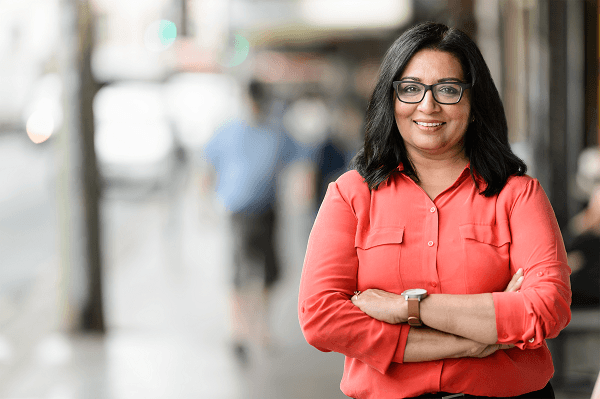When I migrated to Australia from Pakistan in 1992 and commenced my studies at the University of New South Wales (UNSW), I quickly realised I could not afford the available childcare in my local area. That’s how I got involved in a campaign to establish affordable, student-centred childcare at the university.
We won and, to this day, UNSW has provided childcare on campus.
I can honestly say that I would not have been able to complete my Masters and PhD, nor embark on my career in engineering and academia — and then, eventually, state and federal politics — without the availability of childcare at the university.
Earlier this week, the university announced that it would shut down and privatise childcare on campus. This is as devastating as it is indicative of our society’s broader undervaluing of childcare. Those centres — three of which my children attended at one time or another — were a lifeline to me. I had no family in Australia when I migrated here and that meant no one to care for my children if I wanted to work or study. It breaks my heart that very soon they will not be providing the same service for women like me with very few choices.
The shakeup at UNSW is also a sign of things to come if we do not radically change the way childcare works. In Australia, until COVID-19 put the entire childcare sector on the brink of collapse, the government simply did not consider childcare an essential service.
The fee-free childcare program that’s been running through the pandemic is expected to run out on 28 June, forcing millions who have lost work in the meantime to pay fees or make some really hard choices.
In the coming days, the federal Education Minister, Dan Tehan, is expected to announce whether fee-free childcare will be extended beyond that date. To me, the answer is obvious. Thousands of Australian families have benefited enormously from fee-free access since the beginning of April. The minister shouldn’t just extend free childcare, he should make it permanent.
The pandemic has opened up a conversation about the long-term viability of our existing approach to childcare. This is an opportunity too good to let slip away. The reality is the ‘old’ system which we may soon return to was a broken, underfunded one.
There is a compelling case for free and universally available early childhood education and care. It would have enormous social and economic benefits for our community, and lead to a more equitable society. Too often, women have to give up work and career opportunities because childcare is too expensive or not available.
When the minister considers extending free childcare, he should fix the program brought in during COVID-19.
As attendance and enrolments at centres increase in the coming weeks and months, more support must be provided to ensure centres can remain financially viable. Further, we know the childcare workforce is highly casualised and some centres rely heavily on temporary visa holders. The current distribution of relief payments to cover those workers ineligible for JobKeeper is too haphazard and disparate. Wider availability of the wage subsidy is vital to capture all childcare workers and centres that need it.
In our patriarchal society, the caring work has long been seen as women’s work and undervalued, creating the heavily casualised and underpaid conditions for many workers in childcare and early learning. This is not an accident. The entire system — our entire economy, in fact — relies on the unpaid and underpaid work of women in caring roles and the skilled, difficult work done in childcare centres is too often seen simply as an extension of it. Making childcare free and well-funded, and supporting carers and educators is essential to dismantling these retrograde ideas.
We women have known this, but it is good to see the government finally starting to recognise childcare as an essential service, even if it took a pandemic to bring them around. Now this view must stick.
In the long term, our work is cut out for us. We must not only secure the place of childcare as an essential service in the eyes of the government, but expand public operation of childcare and lock in the right to free and universal childcare for all.
Senator Mehreen Faruqi is an Australian politician who has been a Senator for New South Wales since 15 August 2018, representing the Greens.


